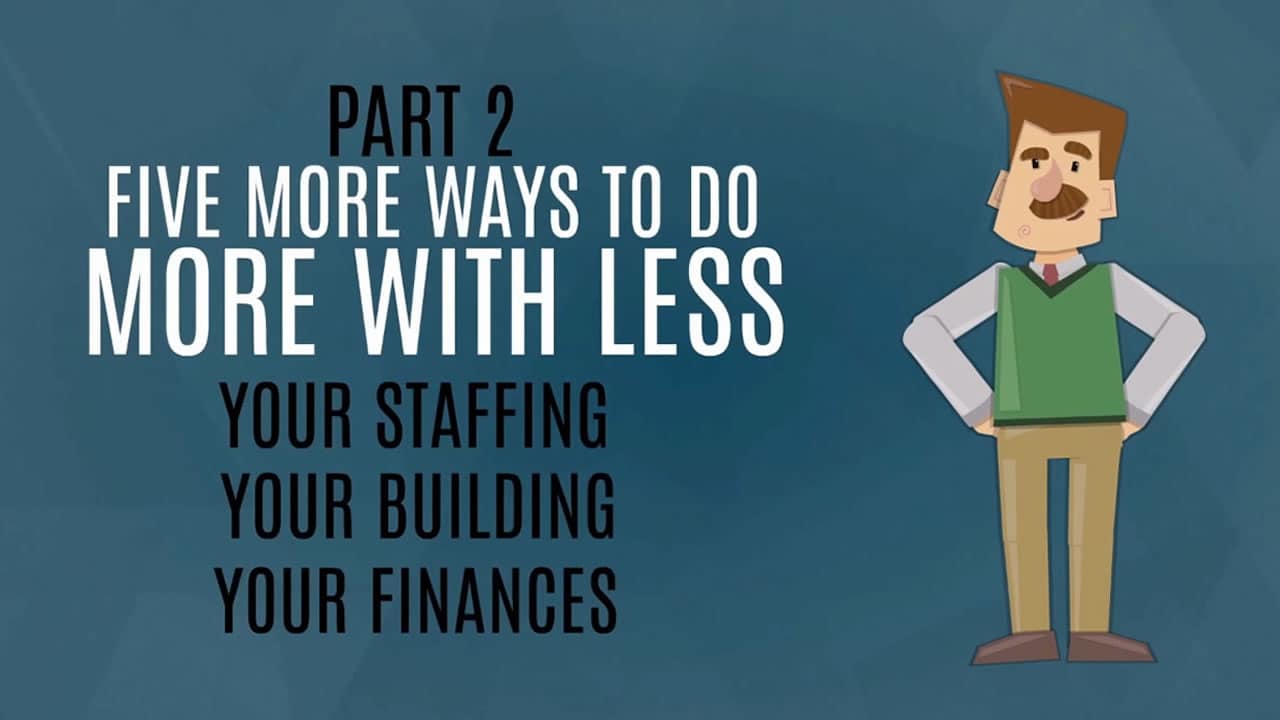
11 Nov Finding Balance on Your Church Staff
The process of hiring additional staff in our churches is often a very precarious task. There really is no written rule of who should get hired or when, just some random suggestions floating around out there. So it’s no surprise that staffing is one of the hottest topics that pastors are looking for answers to today. Of course, you don’t want to overstaff your church because then you’re spending a lot of money on salaries. On the other extreme, many pastors are getting burned out because there is nobody around to take some of the load off. So how do you get balance on your church staff?
The book The More With Less Church has some great suggestions that speak to this area. The book breaks down church staff into two main categories–those who are doers and those who are equippers. While the church needs people who are doers, the pastors of the church need to be focused on equipping. When this doesn’t happen, pastors get burned out, and the church will always be looking for new hires because they are not raising up leaders within their church. In order to keep a balance, the pastors (lead, executive, assistant, etc) all need to be focused on equipping others to do the ministry. They themselves should no longer be focused on hands on ministry, but rather equipping and training others to do so. In order to assist them in accomplishing this, it’s also important to keep a good support staff ratio. As a general rule, there should be one full time support or administrative staff for every two full time equipping staff. This doesn’t mean that you need to have a full time paid secretary as soon as your have two pastors, but it does mean that you should have 40 cumulative hours of support for these pastors. This will help to relieve the pastor of a lot of the day-to-day duties so he can stay focused on his role.
Another important thing to note is that there are two different kinds of equippers. There are specialists and generalists. Specialists are staff that focus on a specific area of ministry, like a children’s pastor or worship director and generalists are those on staff who work with the whole church. Once smaller churches begin to grow, they typically seek out another staff member that is a specialist to oversee an area of ministry. But unless the pastor is directly involved with leading that ministry, adding a specialist staff member will not lighten the pastor’s load because he must now manage that staff member as well. So as long as the pastor already has excellent support staff, it is usually better for the church to hire a staff member who can be a generalist or combine his role as a generalist and a specialist for a certain area of ministry.
As your church continues to grow and you add more staff, it’s important to maintain a pretty equal balance between those who are generalists and those who are specialists, that way the pastor is not left alone to manage a whole bunch of specialists and gets too overwhelmed. The more your church grows, the more need you will have for staff members who can equip others for ministry. And once your church reaches about 350 people, it’s important to having staff members in place who can serve as equippers of equippers. That way your staff balance will not be thrown off and you will maintain a consistent flow of leaders as your church grows.
For more ideas on this and other things, check out our summary on The More With Less Church.



